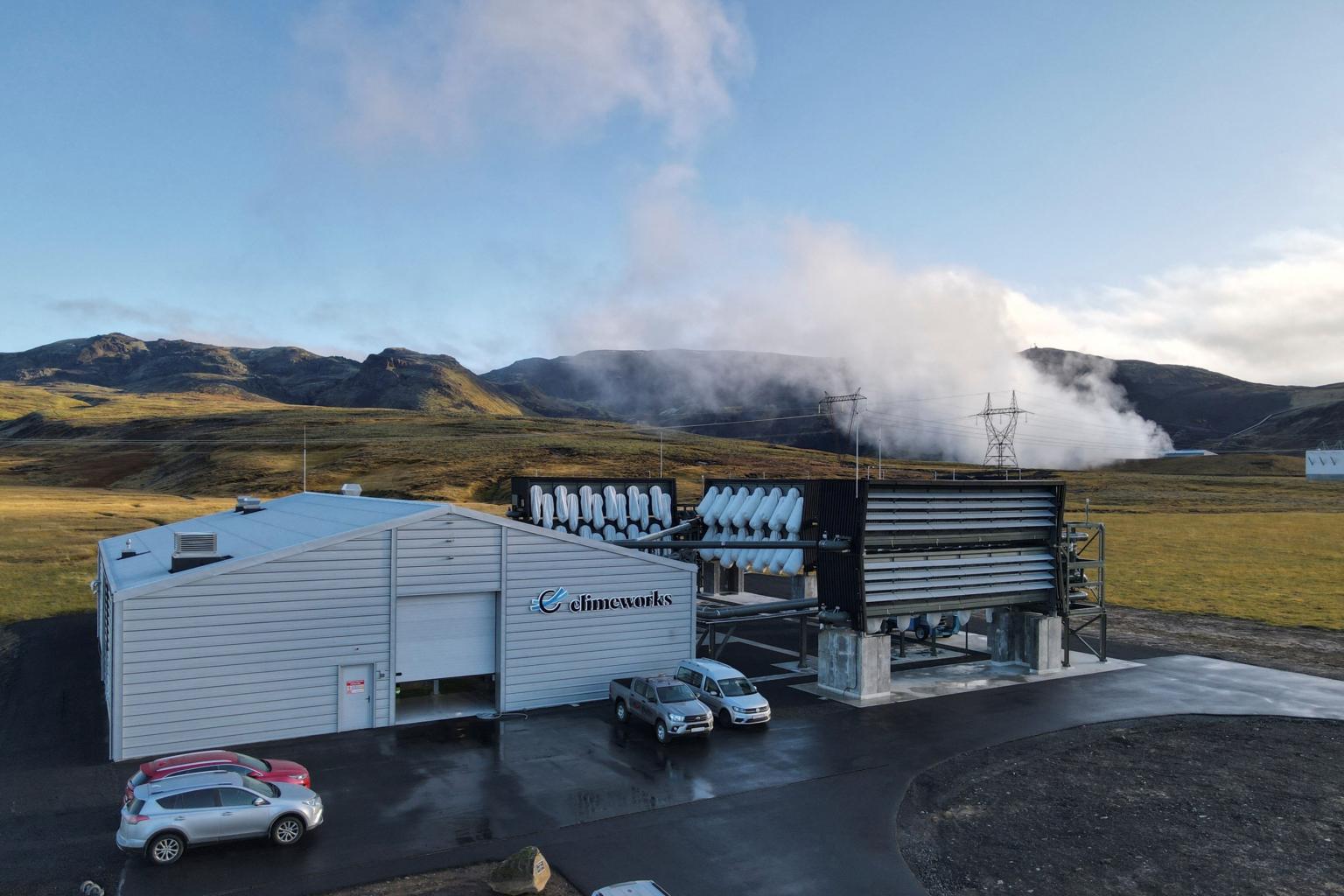Global CO2 removal fund picks six start-ups for its first offset deal
Sign up now: Get ST's newsletters delivered to your inbox

The Climeworks factory at the Hellisheidi power plant near Reykjavik, Iceland.
PHOTO: AFP
SINGAPORE - A US$925 million (S$1.3 billion) initiative by some of the world's largest firms to remove carbon dioxide (CO2) from the air announced its first carbon offset purchases on Wednesday (June 29).
The Frontier fund, a public-benefit corporation owned by Stripe, is buying offsets from six CO2 removal start-ups in Australia, Britain, Israel and the United States at prices ranging from US$500 to US$1,800 a tonne.
The fund will also be the first offset customers for each of the six start-ups, it said in a statement.
Frontier has received funding from Alphabet, Shopify, Meta Platforms and McKinsey & Co.
Its aim is to help fledgling carbon-removal companies scale up and reduce the costs of sucking CO2 from the air, which is increasingly seen as a vital tool to slow the pace of climate change.
The fund buys the CO2 reductions from the projects in the form of saleable offsets. Each offset represents a tonne of CO2 removed from the air and can be bought by a firm to help it achieve its emissions reduction targets.
The projects and offsets are vetted and verified, Frontier said.
Frontier, on behalf of Stripe, will spend US$2.4 million buying carbon removal from the six firms, with another US$5.4 million contingent on projects reaching agreed-upon technical milestones.
CO2 removal technology, such as machines that capture CO2 from the air, is still new and expensive. But investments are increasing to bring the price down and to rapidly scale up the myriad different methods.
Among the six firms are those involved in what is called enhanced rock weathering - using finely crushed rock to speed up the natural absorption of CO2 from the air.
Others capture CO2 from direct air-capture machines powered by green energy or using lime, a mineral which naturally absorbs CO2 from the air. These machines then store the captured CO2 underground.
One of the six, Living Carbon of San Francisco, which specialises in developing trees that soak up CO2 more efficiently, is also developing a process that uses algae to take up large amounts of CO2 from the air, according to the Frontier statement.
Globally, the world needs to reach net zero emissions by mid-century to limit global warming, the United Nations has said. While slashing emissions by ending fossil fuel use and halting deforestation is vital, more needs to be done.
The UN's Intergovernmental Panel on Climate Change, the world's top climate science authority, said that if the world reduces its ongoing emissions as quickly as possible, there will still be too much CO2 in the atmosphere to avoid catastrophic levels of global warming. So to put the world on a safer path, billions of tonnes of CO2 will need to be removed annually by mid-century.
Also on Wednesday, construction was due to begin on what could become the world's biggest plant to capture CO2 from the air and deposit it underground.
Swiss start-up Climeworks AG said its second large-scale direct air-capture plant will be built in Iceland in 18 to 24 months. It will have capacity to suck 36,000 tonnes of CO2 per year from the air, compared with about 4,000 tonnes its existing plant removes annually.


